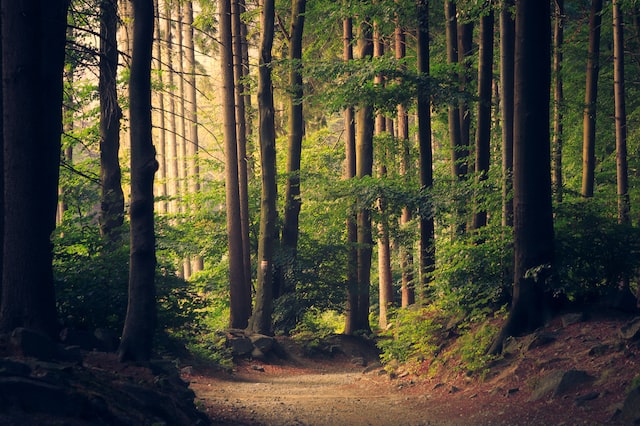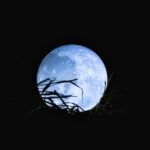by Nicole Yurcaba

In the battle against climate change, literature has become a formidable weapon. Novelists like Alison Stine (author of Trashlands) and poets such as Jared Beloff (Who Will Cradle Your Head, forthcoming 2023) pose dystopian worlds where plastic, floods, and fires have transformed landscapes and mindscapes into hellscapes. Publishers like Milkweed Editions have also risen to the call with visionary projects like Seedbank. The Seedbank initiative brings ancient, historical, and contemporary works to English-speaking audiences. Seedbank is a unique compilation of world literature, featuring Indigenous writers like Yuri Rtykheu and his book When the Whales Leave.
Yuri Rytkheu was born in 1930 in Uelen, a village in the Chukotka region of Siberia. By the late 1950s, Rytkheu had established himself a unique voice and a literary representative of the Chukchi people. When the Whales Leave, translated by Ilona Yazhbin Chavasse, is part Chukchi origin story, part serious warning about how humankind’s greediness and follies will be their undoing. Mystical and magical, timeless and piercing, When the Whales Leave spans generations, telling the story of Nau, who fell in love with a whale named Reu. Because of what the people refer to as The Great Love, Reu transformed into a human and lived the rest of his life on land with Nau. Nau birthed many whale babies who filled the sea, and she eventually birthed human babies—the Chukchi people’s ancestors. The land people, the sea people, and the sea creatures live in harmony together, taking care of and honoring one another, remembering their kinship for many generations until one man, Armagirgin, questions the old traditions and poisons the village against Nau, who despite being ancient still lives among the people.
At its core, When the Whales Leave is a mythological manifesto. Its narrative occasionally deviates from the central plot and blossoms into philosophical anecdotes discussing the necessity for a balance with nature, a respect for the natural world, and the importance of not forgetting one’s origins. The relationship between humans and whales is central to the novel: “Perhaps the kinship of humans and whales had a kind of mythical truth. But myths were meant to be majestic, noble, inaccessible to the common man: a mysterious origin story that shone from a distance, like the snowcapped faraway mountains, not one debased by mundane details.” The necessity for origin stories blends with an imperative call to remember them threads throughout the novel. Throughout Indigenous cultures, many origin stories overlap, bearing similar creation narratives and characters. When the Whales Leave asserts this gently when readers encounter Enu, one of the first to question Nau and her stories.
Enu is thirsty for what lies beyond his realm of ice and snow. He and others set sail for the land of eternal summers, following the whale paths. When Enu returns to the village after many years of traveling, he and his fellow travelers bring to their village a few pieces of knowledge. First, they share their experiences about interacting with “distant kinsmen” who told stories of the whales. The distant kinsmen assert that “whales have the same kind of family life that humans do, and speak to one another in their own language, just as we do.” Second, the travelers remind their village about the importance of returning to one’s homeland, and, more significantly, of not forgetting it. The character Kliau most embodies this ideology. He claims, “‘Our native land drew us back just as the whales are drawn to cold waters with each coming of spring.’” However, for as much as the novel is a mythological manifesto, it is also an ecological one.
The perilous dangers humanity’s greed poses to not only humankind, but also nature, culminate in a single character—Armagirgin. Armagirgin symbolizes greed, jealousy, and generational detachment. He questions the old ways, and instead of approaching fellow villagers and nature with consideration and compassion, he boasts about his physical prowess and his abusive hunting methods. Armagirgin embodies materialism, and he balks at the wisdom his elders attempt to bestow on to him. He finds the old ways silly, proclaiming “‘Only men are the true masters of the world! And we will take whatever we need, giving no thanks and asking no one’s permission!’” Ultimately, Armagirgin’s character represents an ever-lingering foe in the global climate crisis—corporations hellbent on destroying precious environments in the name of capital gains and shareholder dividends. His ruthless avarice proves boundless, and eventually nature changes. Hunters arrive home empty-handed from the bountiful hunts which established Armagirgin’s toxic reputation. The seas are still, empty. Nau, who still lives among the people, insists “it was all to do with human greed and foolishness, with people’s lack of respect for one another, for nature, and for all the other living creatures on sea and lands.” This brings readers to the novel’s endmost ideology—interconnectedness.
Interconnectedness—it’s something forgotten in the modern world, a world in which people take trees and grass and birds for granted, an environment where land is merely a commodity to sell and on which to build. As global temperatures continue rising and warming oceans continue accelerating ice-shelf melting; as fragile, biodiverse areas succumb to clear-cutting and war, and as wildfires and intense weather become more and more part of everyday life, perhaps nature is sending humanity a warning message. This warning message, nonetheless, has been sent for a very long time, not only in signs from the natural world, but also in books like When the Whales Leave. Rytkheu’s book starkly reminds readers that their existence is not beyond nature, and that now, even more so than in the past, love and compassion are necessities for survival—for humans and nature alike.
Nicole Yurcaba (Ukrainian: Нікола Юрцаба–Nikola Yurtsaba) is a Ukrainian (Hutsul/Lemko) American poet and essayist. Her poems and essays have appeared in The Atlanta Review, The Lindenwood Review, Whiskey Island, Raven Chronicles, West Trade Review, Appalachian Heritage, North of Oxford, and many other online and print journals. Nicole teaches poetry workshops for Southern New Hampshire University and is a guest book reviewer for Sage Cigarettes, Tupelo Quarterly, Colorado Review, and The Southern Review of Books.



Add your first comment to this post